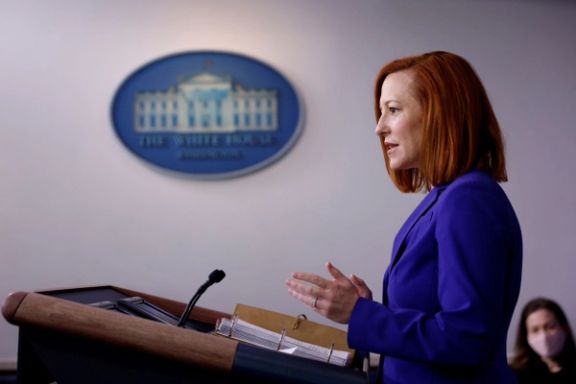White House Avoids Directly Implicating Iran In Attacks On US Bases

As nuclear talks with Iran made “modest progress,” the White House Thursday refused to say who was behind the attacks on US bases in Iraq and Syria this week.

As nuclear talks with Iran made “modest progress,” the White House Thursday refused to say who was behind the attacks on US bases in Iraq and Syria this week.
White House spokesperson Jen Psaki in her daily briefing evaded the question is Iran-backed groups were responsible for drone and rocket attacks against bases where US troops are stationed in Iraq and Syria.
“But here, officially, we don't have any specific attribution today, in terms of the particular group by name or groups who might be responsible for this. We don't have anything new on that front,” she said.
On Thursday, however, an Iraqi militant group tied to Iran had already claimed responsibility. In a statement published by al-Mayadeen, Qasem al-Jabbarin (which means Smasher of the Oppressors) claimed responsibility for the Wednesday attacks on Ain al-Asad air base west of Baghdad.
The White House appeared to be avoiding any statement that would directly implicate Iran in the attacks as nuclear talks continued in Vienna to find ways to revive the 2015 nuclear agreement known as JCPOA.
But Psaki did allude to the possibility that the attacks could be tied to the nuclear negotiations. “We can't say definitively who caused them or why the attacks seem to have stepped up. It is certainly possible that it can be related to the talks in Vienna or the anniversary of the Soleimani strike,” The spokesperson said. Psaki then referred reporters to statements made by the Pentagon, which also indirectly referred to Iran.
The State Department meanwhile reiterated that negotiators in Vienna have made “modest progress” and again warned that time is short as Iran makes more progress in its nuclear program.
“If we don’t soon reach an understanding on mutual return to compliance, Iran’s accelerating nuclear steps will hollow out those nonproliferation benefits the JCPOA conveyed, and we will have to consider a different path forward. That is a matter of weeks; it is certainly not a matter of months,” State Department spokesperson Ned Price said. But he made clear there are no definite deadlines as to when an assessment will be made that Iran’s nuclear progress has gone too far.
“But again, you have heard us speak to this not as a clock, as a standard clock, but rather on the basis of a technical assessment of Iran’s nuclear program rather than any sort of temporal clock with a date that has long been fixed,” Price said.
Critics have said that without a clear deadline, Iran can play for time and gain leverage by a far-advanced nuclear program. The United States and its three European allies in the talks – France, Germany and the United Kingdom – have been warning about time being short since early December.
Meanwhile, Iranian media on Friday continued to issue optimistic reports on the talks, saying that negotiators are maling progress.
Price, however, reiterated that if the US gets to the point where the JCPOA is deemed meaningless by Iran’s nuclear progress, “we will consider a different path.”
In an opinion article in the Wall Street Journalon Thursday, two authors argued that the United States should quickly prepare a military option to destroy Iran’s nuclear infrastructure and set back its program for years. The demonstration that Washington is serious about a military option, might coax Iran to negotiate seriously, and if all fails, President Joe Biden will have the option to act in a timely manner to stop Iran from building a bomb.